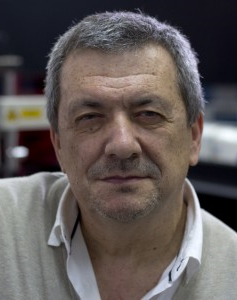Departartment of Analytical Chemistry, University of Málaga, Málaga, Spain
Chemical analysis in planetary exploration.
The instrument suite of the NASA’s MARS 2020 mission Perseverance rover
Spacecrafts equipped with pioneering spectroscopic techniques have been used since the beginning of planetary exploration. Due to the broad number of possible scenarios, a large number of sensing principles, initially developed for laboratory use, had to be adapted not only to the extreme conditions of space, also to the autonomous operation by robotic systems in rovers or landers of largely differing operating characteristics.
Determination of composition of rocks and soils in Mars is central to one of the prime objectives of the NASA MARS 2020 mission – identify past environments capable of supporting microbial life. Context and fine-scale mineralogy, detailed imaging and characterization and detection of elements and organic constituents are the main focus of the ongoing campaign in Mars.
This talk will present an overview of the instrumental techniques on board the Perseverance rover, with emphasis on the SuperCam instrument. Measurement principles and characteristics of the instruments will be presented with a discussion of their capabilities.
Javier Laserna graduated in chemistry from the University of Granada, and received a doctorate in analytical chemistry from the University of Malaga. He then joined the Faculty of the University of Malaga as an assistant professor and became a full professor in 1999. Professor Laserna’s current research interests include the investigation of new measurement principles based on atomic emission, molecular absorption and dispersion and mass spectrometry and the understanding of the fundamental phenomena that govern analytical measurements. He is also interested in the development of analytical instrumentation for laser-induced breakdown spectroscopy, time-of-flight mass spectrometry, remote laser chemical analysis, and on-line and fieldable analytical measurements. Application areas include the analysis of energetic materials; development of sensors for CBNRE threats; lasers for cultural heritage; and LIBS and Raman spectroscopy for space exploration. He is currently a co-investigator for the SuperCam instrument on NASA’s MARS 2020 Perseverance rover.
Prof. Laserna has participated in several research projects funded by the European Commission’s Framework Program both as a member of the consortium and as a coordinator. Likewise, he has been the principal investigator of more than 25 research projects funded by the Spanish central administration and the regional administration of Andalucia. He has published over 300 scientific articles, 6 books and book chapters. He is co-inventor of 7 patents held by the University of Malaga. He has supervised 35 PhD students.
He has given numerous invited plenary and keynote conferences at international meetings. Prof. Laserna was awarded the National Prize for Research in Analytical Chemistry of the Royal Spanish Society of Chemistry in 2009, the National Prize of the Spanish Society of Applied Spectroscopy for his research career in Applied Spectroscopy in 2010, the Lester W. Strock 2018 Award from the Society for Applied Spectroscopy (USA) and the Ioannes Marcus Marci Medal of the Czech Spectroscopic Society in 2019 (Czech Republic).
A passionate of contemporary art, Javier plays Latin percussion, guitar and sings in the band Los Buchipluma; also he sails his 35-feet boat ‘Playa Libertad’. He plays tennis and paddle tennis and enjoys gardening, jazz and world music.

